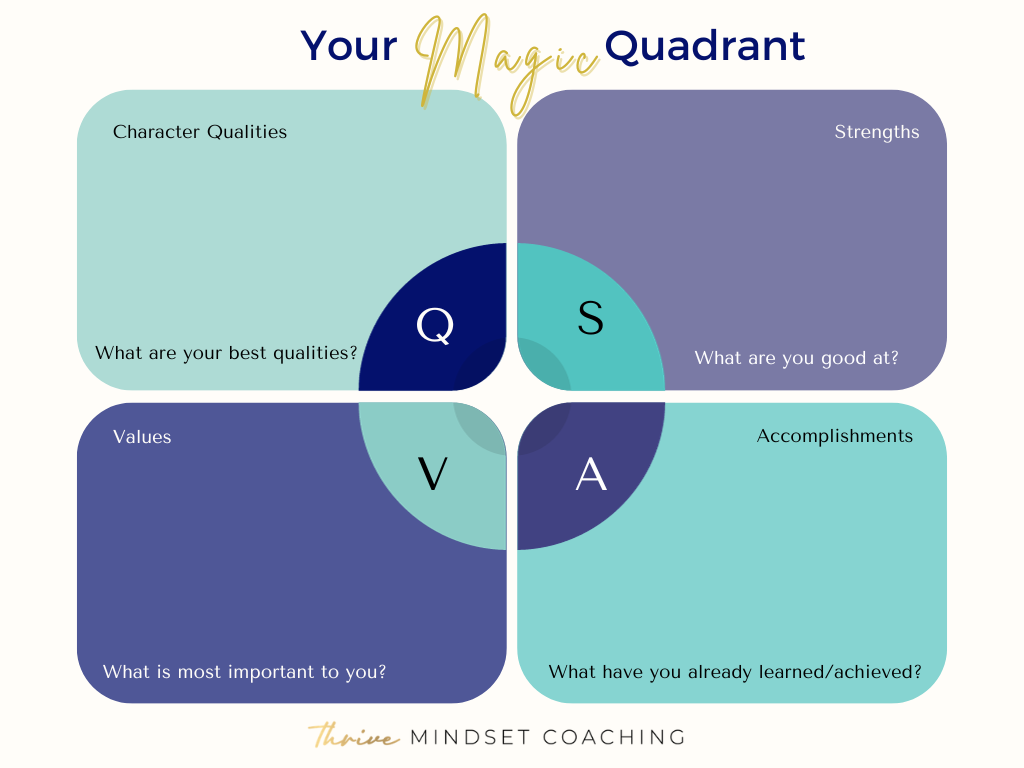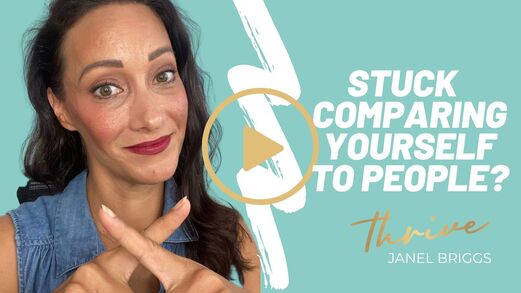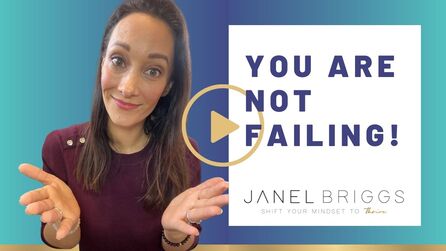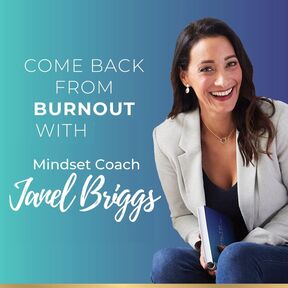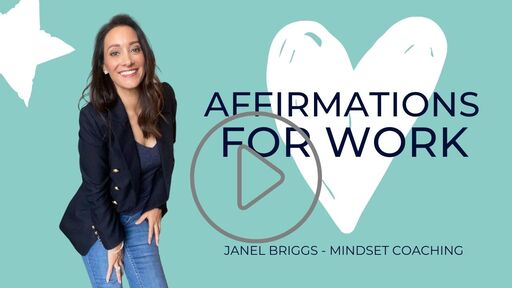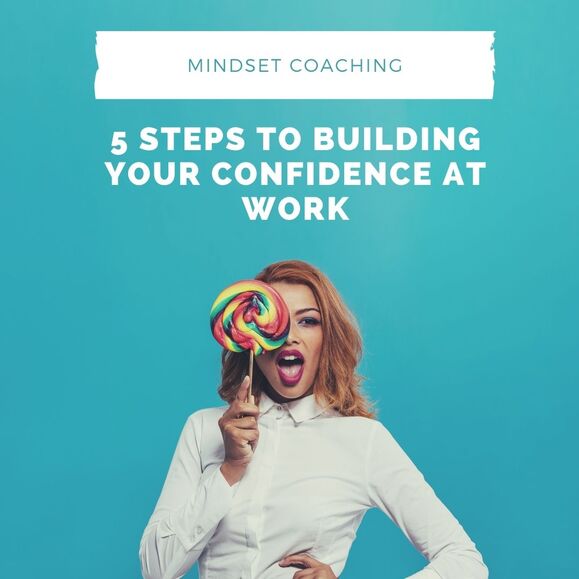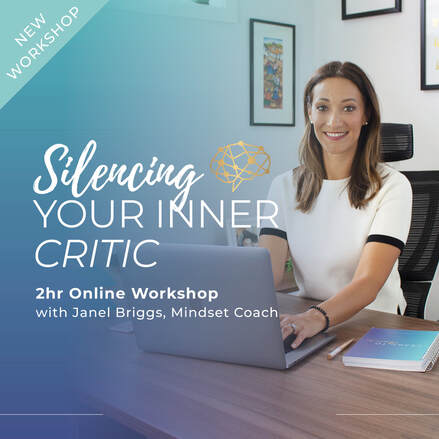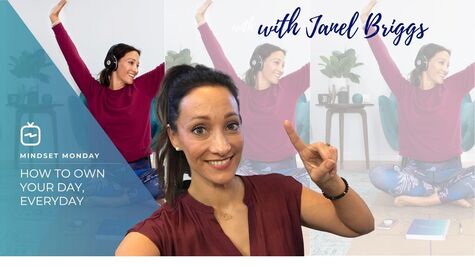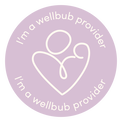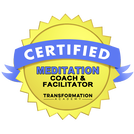AuthorJanel Briggs Categories
All
|
Back to Blog
Tapping Into the Magic Within You9/10/2023 In my line of work it's common for me to see women grappling with self-doubt. Sadly, this lack in belief can be the major cause of our stress, anxiety, burnout and even depression. We seem to live in a world where women feel there is a persona or invisible achievement list they have to live up to in order to be "worthy" or "valued". Watching the Barbie movie recently, this became even more clear to me. (Have you seen it? What did you think of it?) The gremlin thoughts in our mind often make us feel that if we don't look like THIS, or have THAT, or achieve THIS, then we're failing, "not good enough" or will "never be good enough". It's a pressure that is hard to comprehend and manage. And, if we've experienced knock backs at any stage of our life or career, the journey to quiet the gremlins and get back to self-confidence can be super challenging. But I am here to remind you that this journey back to your true self, can also be incredibly rewarding. Within each and every one of us, there exists a reservoir of magic waiting to be tapped into. Special qualities, characteristics, talents, and brilliance that once recognised helps to light up the world in small or big ways. Learning how to unlock our magic is how we overcome self-doubt. Your magic sparkles from your qualities, strengths, values and known accomplishments. If you're on this journey now - I have created a visual thought starter for you. Take a blank piece of paper, grab a pen, and divide your page into four. Ask yourself each of these questions, and fill in a few dot points for each box. Confidence blooms from deeply knowing and understanding yourself, embracing your unique qualities, and acknowledging your accomplishments. These elements will help you to go onto look at pursuing your passions. Mindset Coaching: The Key to Unleashing More of Your MagicMindset coaching is a powerful tool that empowers women to shift their perspective, challenge their limiting beliefs, and develop the confidence to pursue their goals. Here's how THRIVE mindset coaching can further help you tap into the magic within YOU: 1) Identifying Limiting Beliefs
2) Cultivating Self-Awareness
3) Shifting Negative Self-Talk
4) Setting Empowering Goals
5) Building Resilience
Your inner magic is wating to shine. Remember, you are capable and worthy of achieving greatness! Honour your uniqueness, own your story, and believe in your capabilities. THIS level of radical self-acceptance is where the magic sparkles within you! About the Author: Janel Briggs is a NLP and Timeline Therapy Practitioner on a mission to support women across Australia and Singapore in overcoming their professional anxieties, imposter syndrome, fears and insecurities to build unwavering confidence and self-belief. Mindset Coaching is about learning how to become fearless and level up your life and career! Connect with Janel on social media via Linkedin or Instagram.
0 Comments
read more
Back to Blog
As you probably know by now, our LIFE is a journey filled with countless ups and downs, twists and turns, and unexpected challenges within our story. Along this path, we often encounter mental and emotional roadblocks that hinder our progress, cloud our judgment, and leave us feeling stuck. Whether it's confusion about the next step, anxiety about making the right decision, hitting a creative or career block, a lack of motivation, or crippling self-doubt, the mind spins: Where am I going? Am I happy? What am I doing? When will I be happy? These obstacles can be frustrating and overwhelming, making it very difficult to move forward. Previously, before experiencing mindset coaching, I personally would have notched a roadblock up as failure. My mind had been programmed from a young age, that anything less than 100% was failure.
I would be totally stressed out, spiralling into anxiety overthinking all the WHY's and WHAT IF's... ultimately not feeling good enough. Which never EVER helped the situation! When negative emotions and fear rule the situation - it makes EVERYTHING harder. What I've learned since then is that hitting a mental or emotional roadblock does NOT mean I am a failure, or it’s the end of the road. It's actually a fork in the road, a good check in point. Here's why: An emotion in itself is a feeling, and feelings are not facts. The study of NLP (Neuro-Linguistics-Programming) tells us that we experience our first negative emotions in early childhood, typically 0-7 years old. If the negative emotion that we felt for the very first time (like fear, anger, hurt, guilt or sadness) was too confusing for our young mind, or left unresolved, the memory of that experience (and our reaction or response to it) is stored within the unconscious part of our mind. The part of our mind where our habits and patterns are formed, that essentially runs on auto-pilot. The mind then uses this past experience as a reference point for each time that specific emotion is arises in future. Unconsciously filtering new information coming in and present-day experiences on that past trigger point, even though we are no longer a child. The mind unconsciously in a split second says “remember that time you felt scared about X when you were young? This is JUST LIKE THAT”. When in 99% of circumstances it is not. So, our response as adults now to the fear is bigger and can often be out of proportion to the context of the situation in front of us. Have you ever wondered “Why am I so fearful of X, when other people are not? Why do I get so angry and frustrated about X, when so-and-so doesn’t even care? Why can’t I let go of it?” This is why, shown in my example above, I continued to notch up every “No” in my life as a failure. My mind had unconsciously stored an experience of failure when I was 7yo. From that moment I learned to react and respond with fear in a specific way any time there was a possibility of failure. This inhibited me in many ways throughout my adult life. The specific coaching that helped me to realise all of this and release my fear of failure and reprogram the self-limiting belief I had formed that I was not good enough, was the transformational process of TimeLine Therapy®. You can watch my video below to learn more about TLT or read about it here. Now thankfully, when a roadblock presents itself, I like to see the situation as a unique opportunity for inner growth and self-reflection. I am no longer trapped by fear of failure. And this is what I want for you too. It is the reason why just 6 months after working with a Mindset Coach myself in 2017, I went on to retrain and become a NLP and TimeLine Therapy® Practitioner – so I could pay this gift forward to other women just like me. Where do we start when we hit a mental roadblock? Absolutely, we need to honour our emotions and express them. There is a saying I like to remember: “What we resist - will persist”. You can only deny emotions for so long. We must begin to unpack the emotion and the trigger, and find healthy ways to release the emotion. The most powerful way to do this for me is to journal my thoughts. And instead of falling to pieces I stop and ask 3 simple questions to check in: 1. What emotions am I feeling? Why is this situation causing me to feel this way? 2. What are the options in front of me? 3. What is this situation trying to teach me? Or, what can I learn from this? When you are learning you are growing, and you are NOT failing. It's during these challenging moments that we have the chance to zoom out, look for higher perspectives, and tap into our intuition to find the solutions to move forward with ease. Conquering the fear of failure always begins with a process of self-discovery. The inner work for emotional healing may require patience and perseverance, but please know you are not alone! There is guidance and coaching available to support you, whenever you are ready.  About the Author: Janel Briggs is a NLP and Timeline Therapy Practitioner on a mission to support women across Australia and Singapore in healing their professional anxieties, insecurities and imposter syndrome to build unwavering confidence and self-belief. The goal is to level up your life and career by learning how to to live fearless and anxiety free! Connect with Janel on social media via Linkedin or Instagram.
Back to Blog
Is your best work, or your next career move being robbed by fear and self-doubt? Have you ever felt like you aren’t capable, or haven’t earned the right to be in the position you are in? Do you worry about whether you are good enough? In the current business environment where supply chains are strained, inflationary pressures are present and many businesses are going through some sort of change and/or transformation, the need for new thinking and ideas is vital. These challenges can present a fantastic opportunity to show entrepreneurial spirit to solve today’s problems and make a difference. However, the current environment may also be creating additional stress and anxiety due to uncertainty, and the prevalence of burnout and imposter syndrome. A recent global study conducted by Asana, for the 2022 Anatomy of Work report, surveyed over 10,000 employees to learn what’s working and what’s not in organisations. According to this research nearly two-thirds (62%) of knowledge workers worldwide reported experiencing imposter syndrome in the last year, with 42% of employees experiencing both burnout and imposter syndrome at the same time. Imposter syndrome refers to an intense feeling of fraudulence when you doubt your abilities, accomplishments, or skills. The mind often fearing a moment when someone is going to call you out, realise you shouldn’t be there, or you’re not capable for the role. Even the highest of achievers and most confident and intelligent people can feel this way. It’s not defined by age, gender, or experience level. KPMG Women’s Leadership Summit Report found that as many as 75% of executive women report to having personally experienced Imposter Syndrome at certain points in their career. The study also discovered that 56% have been afraid the people around them will not believe they are as capable as expected. Why is this phenomenon so widespread? If we look at the global external environment since 2020, we’ve spent over 2 years surviving a pandemic, isolating, and pivoting to work from home environments. Asana’s report found that almost one quarter of workers experienced burnout four or more times in the last year, and 40% of all workers think burnout is an inevitable part of success. Overwhelm from job uncertainty, increased workloads, and an experience of higher levels of anxiety due to the pandemic coupled with current inflation rates all impacting our daily lives. With a lack of connection to the workplace there are less opportunities to receive face to face feedback, read body language cues, and have open conversations to discuss challenges outside the zoom room. The mind can potentially have a field day analysing, overthinking, and rehashing every conversation and scenario of the workday. “Did I do enough? Was it good enough? What if I wasn’t on point? What will they think of me? Why was I not invited to that meeting? What if I don’t have the capabilities anymore? Will I lose my job?” The mind is a powerful tool but in some cases self-doubt and fear breed without external validation and connection. “With fewer opportunities to connect and celebrate success, remote work is intensifying impostor syndrome. Organizations should ensure that work is still being recognized and championed in remote environments on a daily basis, and that new hires have support structures in place to instil confidence.” —DR. SAHAR YOUSEF, COGNITIVE NEUROSCIENTIST, UC BERKELEY (Source Asana) Imposter syndrome is not incurable; you can become fearless by learning how to cultivate a growth mindset shifting your thinking when flooded with fear-based thoughts and feelings of incompetence. Coaching and training have been found to be two positive solutions to overcoming this fear. In a study done to evaluate the effectiveness of interventions for reducing the imposter phenomenon results reveal that coaching was an effective mindset intervention for sustainably reducing imposter phenomenon scores. Coaching improved self-enhancing attributions and self-efficacy and reduced the tendency to cover up errors as well as the fear of negative evaluation. Training was superior in regard to knowledge acquisition. (Zanchetta et al. 2020). Becoming fearless first begins with acknowledging when imposter feelings show up, then refraining from allowing the fears to hold you back or derail you from taking action. Here are 4 steps to guide you when facing imposter syndrome: 1. Recognise when the feelings arise, awareness always proceeds change. 2. Identify the specific fear or doubt you are feeling. “What specifically am I afraid of here?” or “What is causing me to feel this way?” 3. Review the facts; feelings are not facts. “When did I decide that I am not capable of (X)” or “Where is the proof this person thinks (X) about me?” 4. Reframe the thought process, using the power of positive language.
It can be very unsettling to discover that you’re experiencing imposter syndrome. Given the stigma around this topic, many people might feel like they just have to push through and suffer in silence. You don’t, and the real story is in how you face the fear to rebuild your self-belief. Connection and opening conversations at work are also key. You might even be surprised when you share your experience and people understand exactly what you are going through. Don’t let fear hold you back from your dreams and goals. Schedule a free consultation with me to learn more about what I can do for you, and how mindset coaching can help you, to overcome imposter syndrome. JB.  About the Author: Janel Briggs is a NLP and Timeline Therapy Practitioner on a mission to support women across Australia and Singapore in healing their professional anxieties, insecurities and imposter syndrome to build unwavering confidence and self-belief. The goal is to level up your life and career by learning how to to live fearless and anxiety free! Connect with Janel on social media via Linkedin or Instagram. Click here to learn more about this life changing opportunity.
Back to Blog
It's easy to be stuck in comparison. It's easy to look at the people around us and think that they must have it better. More money or a better job, or a more fulfilling life than we do. But what if I told you that when you compare, you lose. When we compare ourselves to others, we are benchmarking our personal outcome on someone else’s game plan, and hand over our power to the ego. That's why it's so important for us not only to understand how comparison works but also learn how we can overcome its negative effects on our lives. Be careful of what you compare yourself to. Why is comparison usually a losing game? When we compare, we're focused on what is lacking in our lives instead of celebrating what is present. We don't have enough money; they have more money. We don't have the same job title or position as someone else; they do. We don't have the same qualities as someone; they are more interesting, attractive or funny. This thought process leads to whittling away our self-worth, instead of creating a mindset that celebrates our unique qualities and finds happiness in what we already have. Comparison also leads to judgement, setting up an impossible standard by which we judge others against ourselves and other. Judgement is the king of separation and the biggest killer of connection. When you judge someone maybe you’ll come out feeling better about yourself in the judgement stakes this time, and give yourself a shot of confidence boost. But the ego can never be content, it always wants more. Next time you are bound to feel worse and this comparison will not bring you true self-belief or contentment. That’s takes inner work. “The best way to stop feeling that I’m not good enough is to stop comparing altogether.” - Courage to Change, AFGBelieve that you can achieve it, no matter how hard it seems. If you want to achieve your goals, it’s important to believe that you can do it. Believing in yourself, your abilities and having a laser focus on running your own race is the key to success. It’s easy for us all to fall into the trap of comparing ourselves with others and feeling like our outcomes aren’t as good as theirs. But remember: no two people have the same game plan or approach to achieving their life goals – they are unique, and so are you! Let go of any belief that you're not worthy of success. You are as capable of achieving success as anyone else in this world. You can and you will, you just need to shift your mindset and belief system. The only obstacle standing in your way is the belief that you aren't worthy or deserving of it, which causes all the self-doubt. The voice inside your head that says, "I'm not good enough" or "I don't deserve this." This may be news to you - that old voice is just a reflection of other people's doubts and fears, not yours! It takes a lot of courage to let go of those beliefs instead of comparing yourself to others who have already finished theirs. For shifting belief systems I am a firm believer in using positive affirmation statements. I have a list of over 150 affirmations as a free download on my website. You could begin with a statement like this: "I deserve success. I create a life that is full of abundance. I am worthy of these incredible opportunities." Remember why you're doing the things that you are doing in the first place. It's easy to get lost in the comparison game, but remember why you're doing the things that you are doing in the first place. You didn't choose a challenging workout or a new diet because it was fun, right? You're a high achiever because you love the challenge. Instead, these things are part of your journey toward something bigger—they are an essential part of reaching your goals. As Simon Sinek says "Always go back to reconnecting with your WHY." Instead of focusing on what others are doing and judging yourself based on their results, refocus on why you're putting in all this effort in the first place. Remind yourself of your purpose, this is often why people love creating vision boards to much. Having a visual representation of your personal goals keeps you on track to what is most important for you. This will help remind you not only where you want to go but also why it matters so much for you to get there. 4 Keys to Remember to Start Living a Happier Life (without comparison).
Ultimately when we compare ourselves with others too much, our goals seem further away and less important because there are other people who have already done it first, or better. But in reality no one can ever do it like you! Every journey is different—and yours will take exactly as long as it needs to take. The next time you feel like you're stuck in a rut, remember to look at what is really going on here. Are you comparing yourself to someone else? Or are you holding yourself back because of some belief that has been ingrained in your unconscious mind? If so, then it's time to take a step back and reevaluate what it means for success in your own life by focusing on what makes us different instead of trying hard enough to be exactly like everyone else.
Back to Blog
 We all have limiting beliefs. They’re those pesky, damaging, and deeply ingrained thoughts that’ve been there for years. So long in fact that we’ve become convinced that they must be true. They’re not. Trust me. I’ve been there and come out the other side and want you too as well. So what are limiting beliefs? Where did them come from? And how can we get rid of them? Limiting beliefs reach across all aspects of your life. They’re thoughts or opinions that negatively impact your relationships, growth, and moving forward. They’re the little (or loud) voice saying… I’m not good enough, smart enough, pretty enough. I’m too loud, too much, too clumsy. I don’t deserve this. I could never do that. I know I’m going to fail. During my study of timeline therapy and Neuro Linguistics Programming (NLP) coaching certification, I came to understand, and now coach, that most of our core beliefs, or how we feel or what we think about ourselves, are language patterns and programming from childhood. They’re developed when we’re young from a particular moment (or moments) in time. Influenced by family, friends, culture, school, or society in general, someone said something, or you overheard something and, for better or for worse, you decided (consciously or unconsciously) to take on their opinion or label and carry it as your own. As your truth. You start believing what you heard. And over the months, years, and decades, the words become ingrained “truths” and limiting beliefs that end up adversely effecting and impacting your confidence, self-esteem, and self-belief. And as we humans tend to do, we remember these negatives much more than the positives, making so much easier to believe these un-truths. So now that we’ve talked about what limiting beliefs are and where they come from, let’s talk about two ways STOP and reverse these thought and beliefs about yourself. AFFIRM\NATIONS
Affirmation are essential in countering decades of negative programming, self-talk, and limiting beliefs. The three steps to using affirmations are personalisation, repetition, and trust. Personalisation Make sure your affirmations are specific and personalised to you. Start each statement with “I am…” and make sure they are ALWAYS positive. No won’ts, don’ts, or I’ll try’s. Think “I am brave” or “I am courageous”, not “I wish I was brave” or “I want to be courageous”. Repetition Repeat, repeat, repeat. Write your affirmation in your journal (you can get mine here). Record and listen to them on your phone. Put sticky notes up around your home. Write, read, and hear them often. Use the same affirmations day in and day out until you truly feel and believe each statement. Trust As difficult (and strange) as it might seem, you really do need to trust the affirmation process. While it won’t happen overnight, repeating your statements focuses the forces of energy to bring light to your desired result. Trust and believe good is coming your way and see the magic unfold. To help you get started, or continue on your affirmation journey, visit my website to download my free 150 Positive Affirmations list. DEEP (GUIDED) WORK While affirmations help you move forward, actually getting rid of limiting beliefs often takes deeper work. The key to this deep work however is doing it with guidance. Trying to “do the work” without guidance can be difficult, frustrating, and potentially upsetting. By having a safe space to discover your underlying limiting beliefs and be guided through a process to transform these into empowering new beliefs you become your own “inner mentor”, confident and able to go forward. So you’re not alone in the deeper work, I run a small and intimate “Silencing Your Inner Critic” group workshop every month. Together over zoom we work together for 2 hours from the comfort of your own home on:
Limiting beliefs are just that, limiting. While they’re familiar and known, they also tend to keep us surviving and not thriving. They keep us stuck in the past unable to make real progress forwards. Instead let’s get you thriving. Let’s get you working on reprograming your beliefs. Let me help you build unwavering self-belief and get rid of your limiting beliefs. If you haven’t already, be sure to subscribe to my blog and YouTube channel. Download your free 150 Positive Affirmation List or get on the wait list for my next Silencing Your Inner Critic online workshop so we can do the deep work together.
Back to Blog
Almost half of those said they worked nearly TWICE as many late hours than the previous year.
And the number of hours spent working overtime? For many it went from 236 hours to a staggering 436 hours in one year. No wonder we’re all so burnt out! In my own work, many women and clients I’ve spoken to said this year has felt like one big emotional hangover, which often leads to… burnout. And the similarities I’ve been noticing? Emotional exhaustion + mental load = burnout Emotional Exhaustion Emotional exhaustion is the most common experience of burnout women feel and that I’ve seen with my clients during the last year and half. Whether it’s total exhaustion from the weight of conflicting, overwhelming, and repetitive emotions or the prolonged feelings of exhaustion, frustration, fear, worry, loss, sadness, anger, resentment, and even guilt, we’ve all been feeling it. The constant changes and adaptations. The cycles of change with feelings of little control over our lives. They all take an emotional toll. They all lead to emotional exhaustion often followed by burnout. Carrying the Mental Load The mental load we carry is not often as obvious as emotional exhaustion. But you know all those thoughts constantly swirling in our minds? The processing, analysing, overthinking? The monkey chatter and second-guessing? The doubts and fears? Well, this is carrying (and often being consumed by) the mental load. The mental load of our thoughts, worries, fears, and the stress that come from these patterns of repetitive (and often negative) thoughts. Of future pacing and staying five steps ahead. And then there’s the over-analysing… Have I done enough? Is there more I should be doing? Something I should’ve done? Something I shouldn’t? The reality of carrying these constant thoughts and beliefs is that is becomes overbearing, overwhelming, and exhausting. The mental load wears us down and leads us to burn out. How could it not? Making Changes Even after we’ve recognised our emotional exhaustion and mental load and made some changes, we often still FEEL burnt out. Confusing right? See when we experience chronic stress these feelings can trigger negative thought, emotions, beliefs, and patterns which often triggers our bodies’ stress response. So even if you’ve eliminated or eased the stresses and know things have changed your body never actually got the memo that everything’s ok. It doesn’t know you’re in a good place. You’re out of lockdown. You’ve changed jobs. It doesn’t know you’re ok. It doesn’t know you’re safe. Essentially what this means is that removing the stress doesn’t fully move you through burnout. Instead it’s your behaviours. Your behaviours tell your body things have changed and it’s ok to relax. This is why when you think, “I’m over that now.”, and can’t work out why you still feel so exhausted it’s because you’ve made changes to your external environment but not your internal habits and behaviours. You need to signal your body that you ARE safe. The danger IS over. You need to allow your body to process through the emotions, because if you don’t, you’ll likely stay in an emotionally burnout state being triggered time and time again. But, nothing changes if nothing changes right? Here are three steps you can start today to release the emotional exhaustion and lighten the mental load that can lead to burnout.
Emotional exhaustion and carrying the mental load are real. And remember, there are strategies and practices to assist, and I’m always here to help whether through my YouTube channel, blogs, or programs.
Back to Blog
You are NOT Failing!23/9/2021 Unable to be five steps ahead of everything and everyone. No longer having that focus and motivation for exercise and eating to take care of their body. The truth is... YOU ARE NOT FAILING. You are living through a pandemic - GROWING and EVOLVING every day.You are learning more about yourself and the people in your immediate world, than you probably ever have before. The intricate details of …
And, if you have the pleasure of home schooling like me add re-learning Grade 2 to that list (argh!). This is your reminder, that real life will still be there, after the pandemic. And so will your dreams and goals. The body you are unhappy with right now, can absolutely make a comeback. The job that you cannot stand, might feel different when your office returns or after a holiday (or maybe it’s the push for you to make a change). The relationship that is causing you frustration, will hopefully look different when we can have more room to breathe and external outlets. And that goal or achievement that you set a date for and missed, doesn’t mean the goal isn’t worthwhile! Zoom out and see the bigger picture, perhaps there has been more to learn on the way to that goal you want to so much? In my map of the world, there is NO failure. There is ONLY feedback. Notching your failures is what keeps you feeling stuck, literally reliving the past with your mindset fixed on “I failed - it will never happen”. Where as a growth mindset says “What I can learn from, I can change” which keeps you moving forward (and feels so much lighter doesn't it?!) What have you had to learn, grow, heal or fix this year….? Answer that first, and then shift your goal posts. So, how do you get unstuck?
Side note: I really hope that if you are reading this and still in lock down that the only goal you are setting for yourself right now is focused on your health and happiness! I know your world being on pause is frustrating, I feel it too. Let's be honest - NO ONE is really achieving right now! I don’t care what you are seeing on social media. Everyone is hurting from this pandemic. Everyone is just doing the best they can to survive and make it through. And if they are achieving then I have no doubt that something else has had to give. I am a firm believer that you can do anything, you just cannot do everything to 110% all at once without a ball dropping somewhere! Take care JB NEW! Burnout Recovery Program
Break the burnout cycle and start changing habits for long term well-being in 4 weeks!
Back to Blog
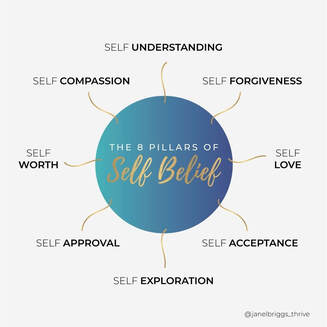 I had a client recently, who was struggling with imposter syndrome, can you relate? My client felt like she wasn't good enough for this role and her confidence had taken a hit after some disappointing feedback from a Manager she really liked. To be honest, her self-belief pillars were totally shaken. We worked through a short coaching program to rebuild her confidence by reconnecting her to the 8 underlying pillars of self-belief. Step 1 - We explored her genius zone, the way in which she does her best work, accepting and understanding her strengths and weaknesses The secret here is to list your strengths and weaknesses, and map it across to your work.
Step 2 - We outlined her values and she did a road map of her past career achievement, while redefining what her model of success looked like. The secret here is to identify what qualities are most important to you.
Step 3 - We explored her fears and found the root cause of it all was actually that she was frightfully scared of failure. We did a release technique in time line therapy to bust through her fear and we met it with forgiveness and acceptance. The secret here is to follow the fear.
Next, I suggested she use 5 x positive affirmations to help build confidence at work. A free tool anyone can use and start today. After just one session of getting really clear on who she was and what she wanted she saw her confidence start to return and her work anxiety lessen. That is the power of the mind! Ps. If you want to learn more about the 4-session coaching program I talk about in this blog you'll find it here -> CAREER MINDSET RESET
Back to Blog
Today’s blog is all about building confidence in the workplace and comes from a recent "Career Mindset Reset" session I had with one of my clients, who was looking for advice on how to feel more confident as she steps into a new role and organization. If you are struggling with confidence at work too - this is your lucky day! I break down my 5 steps to building your confidence at work, focusing on: time, skill, experience, reminders, and self-belief. 1. TIME Before you feel confident in anything you need time, you need a transition period as you learn and adapt to the role, figure out who’s who in the zoo, start building rapport with your colleagues and boss, and eventually settle into some kind of flow. You simply cannot expect to understand and know everything on day one, week one, or even month one. Learning and confidence takes time, so be kind and don’t rush yourself. Know that things take time, but you will absolutely get there. 2. SKILL If you're in a job, role or business where you don’t feel confident you probably have fears like:
In order to make you feel more confident and capable, first take a look and map out your skillset.
Now look at all of those amazing skills you probably didn’t even realise you had! Amazing isn’t it?! After mapping out your skillset, maybe you realise there are a couple of gaps. Yes? No problem!
Taking the time to map out your skills can help you see everything you already have to offer while also narrowing in on areas you might want some training or assistance with. 3. EXPERIENCE After time to adjust, and the getting to know your skills comes experience. You need experience and practice using your skills and skill sets, because there’s no way you’ll feel confident in something if you have no experience using that skill. You simply cannot expect to be confident and know what you're straight away, especially if it’s a relatively new or unpractised skill. Instead it takes trial and error, daily consistency, and sometimes failing or even sucking at things before you actually learn and have the experience necessary to build up your confidence. Take myself for example. I cringe at some my early mindset coaching videos, but I practiced and learned, and built up my experience so that now I produce better quality content that I’m extremely proud of. I have the experience of trial and error and reflection to feel confident in what I produce. It takes time to build experience, and that’s okay. People understand. And the more you do it and repeat the experiences you’ll build up that confidence. 4. REMINDERS I had a client come to me once and say, "I just don't feel experienced enough", to which I said, "How do you know you aren't? When did you decide? Is this your standard or someone else's?" The next thing I asked her was to create a career timeline and look back asking herself:
In doing this exercise there was a light bulb moment (there always is!) where she realised her lack of confidence was actually coming from her OWN mind. Seeing it in black and white she had the realisation that she’s already achieved so much and actually does have the skills and experience. She just needed to be reminded. 5. SELF-BELIEF Belief in yourself and your skills, abilities, and experience is my last tip in building confidence and helping you see that you ARE capable and anything IS possible. Like everything else, is takes practice to really get comfortable with self-belief, and positive affirmations can absolutely help with this. Writing affirmations in your journal, reading them to yourself, and saying them out loud every single day will 100% embed these positive affirmations into your mind and shift your mindset and confidence. Here a few to get you going:
If you're interested in exploring any of these confidence-boosting tips, I run a single two hour workshop called "Silencing Your Inner Critic" where I help women understand their major limitations and the power of self-belief. If you want to explore more check out my one-on-one coaching offering, comment below, or send me an email ([email protected]).
Back to Blog
As a Mindset + Business Coach, the question I’m asked most often is: “Janel, what’s the ONE THING I can do on a regular basis that’ll make the biggest positive difference in my life?”. My answer? 100% your morning routine. The things we do every day make a difference. They make a difference to our mental and physical health and wellbeing, to our mindset, and to how we head into and experience the day. It’s the “little things” we incorporate into our routines and practice every day that can make the biggest overall difference. Now the tips and suggestions I’m about to share with you probably aren’t anything new. Many of us already KNOW the practices that are good for us, the trick is actually DOING those things. Meditate, journal, exercise, eat well; we know these are building blocks to thriving and making us feel better. The difficulty is putting one foot in front of the other to get started… and then to keep it going.  Sometimes the biggest block is that it all just seems so overwhelming… if I'm going to start a new morning routine, then it means I have to get up at 5:00am. Then I need to spend an hour and a half doing ALL THE THINGS to fill my mind, move my body, and get ready mentally and physically for the day. And next? Wham, there's an extra hundred million things to add to an already full morning. Enter your mind saying, “This is too hard. There’s too much to do. Forget it. No deal.” Now stop. First, don't think about the 50 million things you have to do tomorrow, this week, this month, etc… Instead, focus on what you can do TODAY. Focus on the one LITTLE thing you can do today, that can be incorporated and repeated tomorrow, and the day after. Focus on the ONE THING you can do today, incorporate it slowly and gently into your morning, and then become consistent at it over time. If you have one of my Learn to Thrive journals you know all about incorporating small changes over time. I call the morning routine “Five to Thrive”, and once you’ve gently incorporated all five into your morning routine it will look like this:
Now you try. Start with waking up just 10 minutes earlier tomorrow and choosing ONE THING (not ALL the things!) to add in. After you’ve chosen this one thing, do it consistently for the next 30 days. Do this one thing (and only this one thing!) until you’re comfortable with it. Only when you’re comfortable with it is it time to incorporate something else. So now that you’re comfortable with it, the next day you get up another 10 minutes earlier, and add ONE more thing, commit to it for the next 30 days, and so on. Does this seem slow? Maybe. But see it’s all about baby steps and simplicity. No complexity and no overwhelm. We’re aiming for one thing to be incorporated slowly and steadily over time. And the compound effect of this gentle routine on your mindset? Trust me, it is truly, truly incredible. Watch full video here for more tipsYou start feeling more comfortable and confident in yourself and in your days. You wake up each morning, practice your routine and eventually find that you feel amazing. You feel amazing and your days and weeks and months are running smoother because you've been meditating every day, been writing in your journal every day, been moving your body every day, been eating a nutritious breakfast every day, been listening to music every day.
This compound effect of all these “little things”? AMAZING! Feeling motivated to get started? Do it! Not so motivated? Don’t wait! Why? Because you may never feel motivated to start, especially if it’s something new (or involves getting up earlier). Instead, take the leap, set your alarm, and jump in. Choose the one thing you’re going to start with and just start. Will it be easy? Maybe. That’s why taking gentle steps over time helps. But sometimes however you might need additional support along this morning routine journey. If this is the case, follow me at janelbriggs_thrive on Instagram and see how I use the "five to thrive " method or simply email me, [email protected] - I'd love to hear from you! Take care, JB |
|
Stay Connected
Subscribe and be the first to access new blog content news & updates. |

 RSS Feed
RSS Feed

